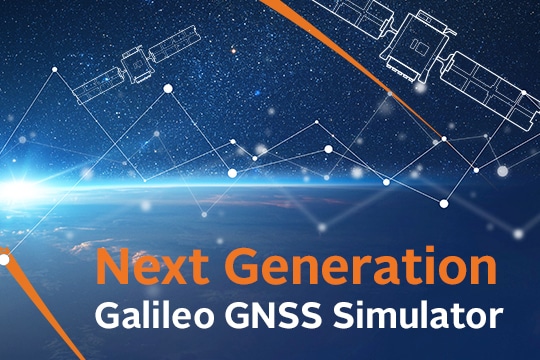
# News
Orolia Selected to Deliver the Next Generation Galileo GNSS Simulator
May 13, 2021- Paris, France – Orolia has been selected by the European Commission and the European Space Agency (ESA) to provide the core GNSS simulation engine for the Galileo Second Generation (G2G) RF Constellation Simulator (G2G RFCS).
While the first launched Galileo satellites are reaching the end of their theoretical operational life, the Galileo Second Generation (G2G) initiative includes the preparation of a future generation of Galileo global infrastructure, from satellites to ground segments in order to maintain current services as well as to provide improved performance and RNP (Required Navigation Performance) features to all users.
In this context, Orolia has been selected to participate in the G2G RFCS activity, which will support G2G signals evolution requirements.
The primary objective of the G2G RFCS initiative is to design, develop, manufacture, and test an enhanced radio frequency constellation simulator dedicated to Galileo engineering and experiments. This simulation technology will enable scientists and industries to verify, demonstrate, and validate the future G2G configuration.
To meet these requirements, Orolia will provide the core GNSS simulation engine based on its Skydel software technology, within a custom hardware configuration to simulate all Galileo signals including Open Service (OS) and Public Regulated Service (PRS). Orolia’s proven GNSS simulators offer the high-end performance level and flexibility required to configure this new testing infrastructure in a unique, software-defined solution.
“With this project, Orolia demonstrates the Skydel platform’s exceptional flexibility to meet critical application requirements and serve as the core engine to design the next generation of GNSS signals. We are very proud to work with ESA, GMV and Tecnobit to help develop the next generation European Galileo constellation,” said Orolia CEO Jean-Yves Courtois.
Disclaimer: Funded by the EU. ESA has received funds in its quality as funding body under the European Union’s Horizon 2020 research and innovation programme. The view expressed herein can in no way be taken to reflect the official opinion of the European Union and/or the European Space Agency. Neither the European Union nor the European Space Agency shall be responsible for any use that may be made of the information it contains.
Press Contact
Sophie Zangs
+33 (0) 6 07 42 39 33
sophie.zangs@orolia.com


